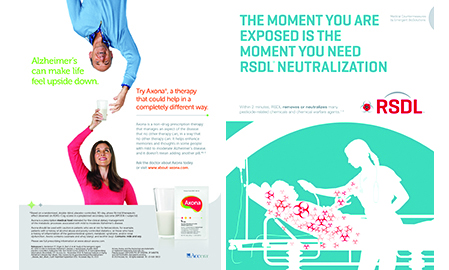Brandkarma president and CEO Ken Ribotsky may change what he calls his agency, but it keeps growing nonetheless. In the agency’s first full year solely under the Brandkarma banner after transitioning away from the Core-Create and Core Nation names, both revenue and staff grew by 25%, matching the previous year’s performance.
“2013 was a positive year for Brandkarma even though we experienced some significant business shifts toward the end of the year,” Ribotsky says. “We have a couple of clients that were affected by the latest flurry of mergers and acquisitions, which caused this shift in business. Conversely, we built and executed a relaunch that involved a DTP push for which we were able to handle all of the creative and media. Early in 2013 we increased our staff to handle the DTP components, including media and digital/social media work. The DTP campaign required a substantial creative push that contributed nicely to our bottom line.”
Another positive development grew out of 2012’s launch of Accera Pharma’s Axona, a prescription medical food for the management of Alzheimer’s disease. The agency’s Axona work led to inquiries about its medical-food capabilities—and now, five medical-food brands on the roster have created what Ribotsky calls “an unexpected subspecialty.” The agency has also been gaining more business in the diagnostic area. “Our experience in this high-science category has helped us to attract other diagnostic companies,” Ribotsky says.
Midway through the year, Brandkarma gave its website a new look, implementing responsive design with parallax scrolling animation adaptable to the device on which it is being viewed. The new site won an Outstanding Site award from the Web Marketing Association three months after it launched. Winning awards for self-promotional work has become a bit of a habit for Brandkarma; a previous incarnation of the agency’s website won an RxClub award in 2010, and its “gorilla” print ad garnered acclaim as one of the best promotional campaigns of 2013.
Ribotsky notes an industry-wide trend towards more “patient-centric” marketing, though he feels that marketers’ actions may not have caught up with their rhetoric. “Even though it has been talked about for a while, there are very few brands that are really practicing this [patient-centric] approach,” he says. “Closely related is the renewed hope for social media within the pharma/device/diagnostic sectors. Now with some guidance it seems companies will stick their toes in the water and at least experiment with true dialogue.”
Brandkarma has a clear view of the speed at which the industry is moving and the challenges to the planning required to create successful brands. Many companies, Ribotsky believes, can’t move forward and invest without having some success to justify the dollars. “One depends on the other, and ultimately makes it hard to gain commitments,” he says. “Marketing ‘R&D,’ which is needed today due to the constant state of change in communications, is tougher to do.”
But with back-to-back years of 25% growth as his own justification, Ribotsky has faith in Brandkarma’s ability to keep pace with the industry’s rapid changes. And even with new success in medical foods and diagnostics, he remains on the prowl for an opportunity in dermatology, a 20-year agency specialty that fell off the roster due to a client merger in 2012.
“We have not succeeded at acquiring a dermatology client as of yet,” Ribotsky says. “The high degree of mergers in that category has left very few brands for us to target. We hope that we will come across one in need of assistance shortly.”
From the July 01, 2014 Issue of MM+M - Medical Marketing and Media








